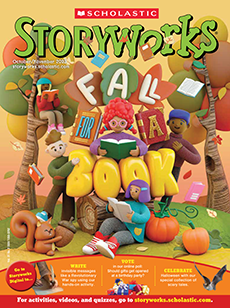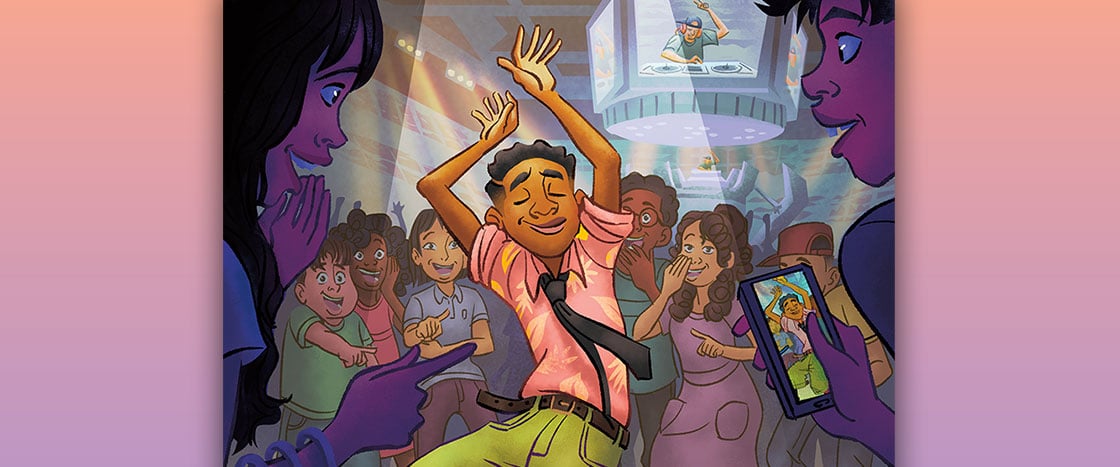I pull the pink-and-peach Hawaiian shirt over my head, then check myself out in the mirror. My shorts are a little too baggy, but otherwise, I look just like DJ Shout from Beat Squad.
I have been planning this outfit for six months—ever since we bought the tickets to the concert. DJ Shout always picks people from the crowd to show on the jumbotron during his concerts. This outfit is guaranteed to get his attention. I mean, I’m even wearing socks and sandals—just like him. If that’s not dedication, I don’t know what is.
“Des!” I whip around to face my 16-year-old brother, Roosevelt. “Let’s go! Brandy is probably already there. It’s almost . . .” He glances at his wrist, then scowls. He stopped wearing a watch two months ago—I guess they aren’t “in” right now.
“You mean Brandy and my friend Kordell,” I say, following him out of the room. Well, technically Kordell isn’t my friend. Not really. He’s just a cool kid who’s been in all my classes since kindergarten—and Brandy’s little brother. But thanks to Beat Squad, that’s all about to change.
Roosevelt looks over his shoulder and down toward my feet. “Desmond!” he screeches. “You can’t wear that! Socks? And sandals?”
He charges into the kitchen, where Mom and Dad are sitting at the table. “Mom! Dad! Tell Des that he has to change!”
“Roosevelt, stop worrying about what your brother is wearing,” Dad says. “It doesn’t matter how you look—as long as you feel like you look good.”
Mom coughs, clearing what must be a little tickle in her throat. Dad strokes his almost fully gray beard.
“Maybe I should go with y’all,” Dad continues. “Show you boys what it means to get down.” He starts jutting his neck, like he is a bobblehead. “Back in the day, I could dance for two hours without breaking a sweat.”
Mom rolls her eyes. “That’s not what your deodorant said.”
“I wonder if they have any extra tickets—”
“Dad, we’re going to be late,” I spurt out.
Dad’s eyes crinkle—just for a moment—and then he grins. “Sounds good, Slick.”
I give him a big high five. Just last year, I was still hugging him. But . . . that doesn’t seem to be right anymore. I never see any of the other fifth-grade boys hugging their dads.
“Have fun!” Mom says.
“We will!” Roosevelt says with car keys in hand.
Mom and Dad wave at us . . . and then Dad goes right back to jutting his neck around the kitchen table.


